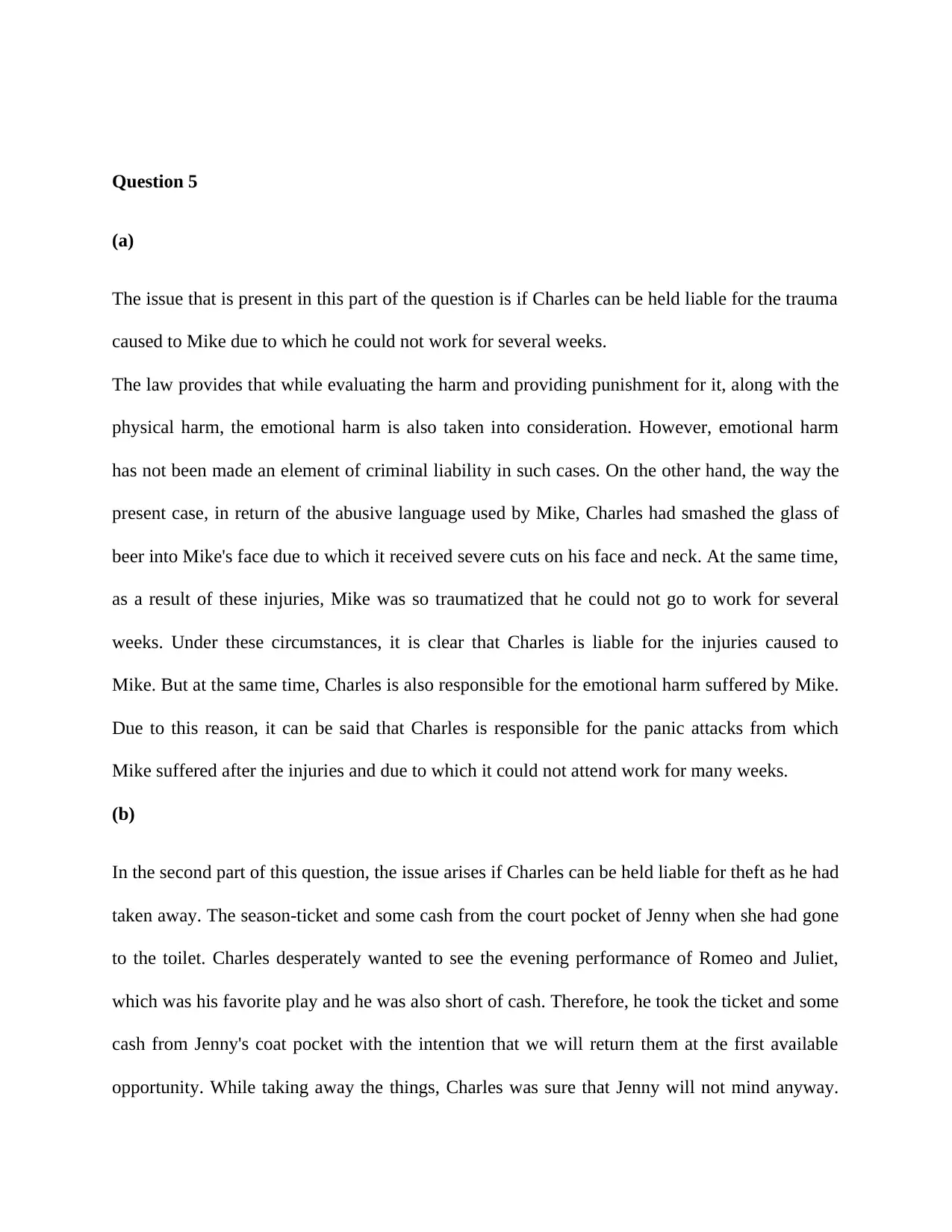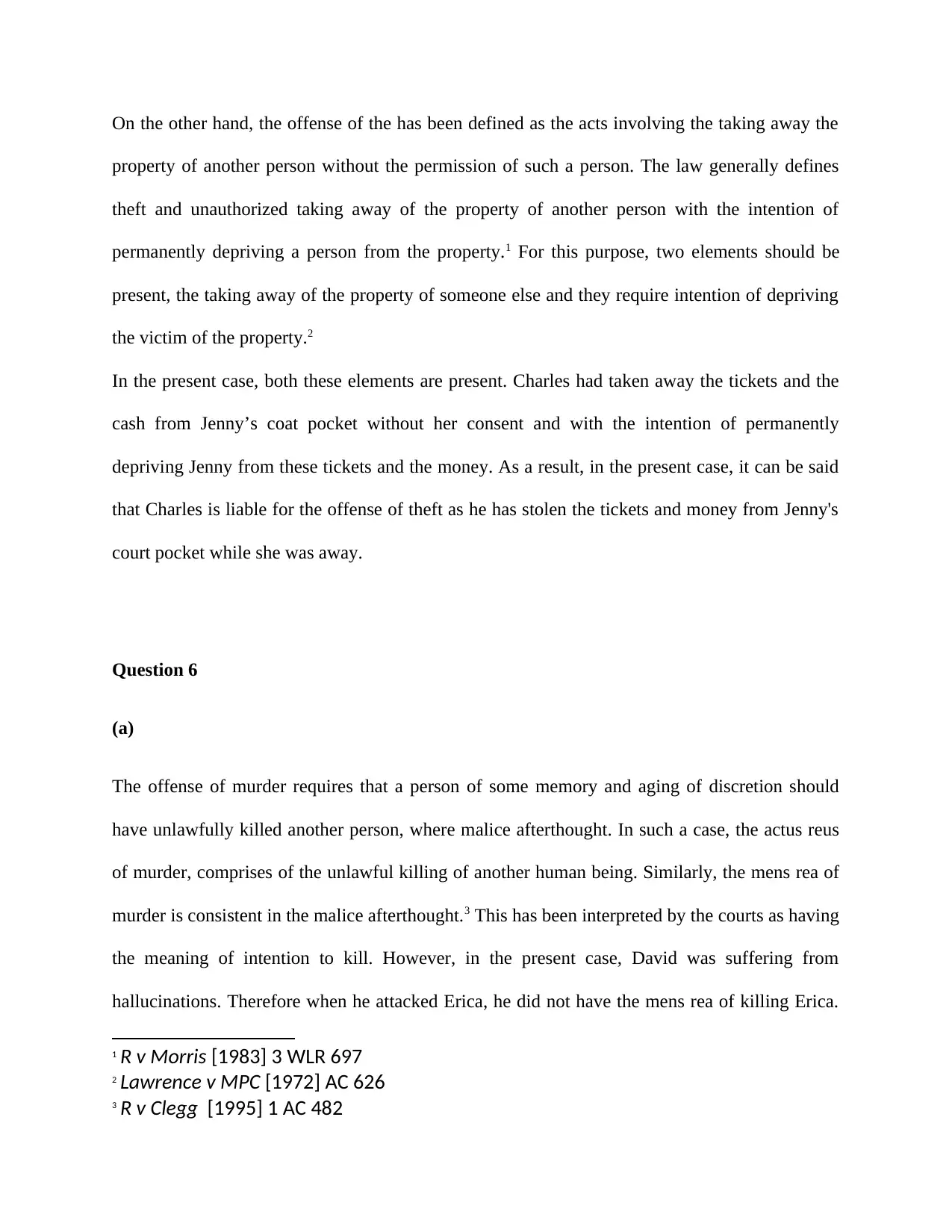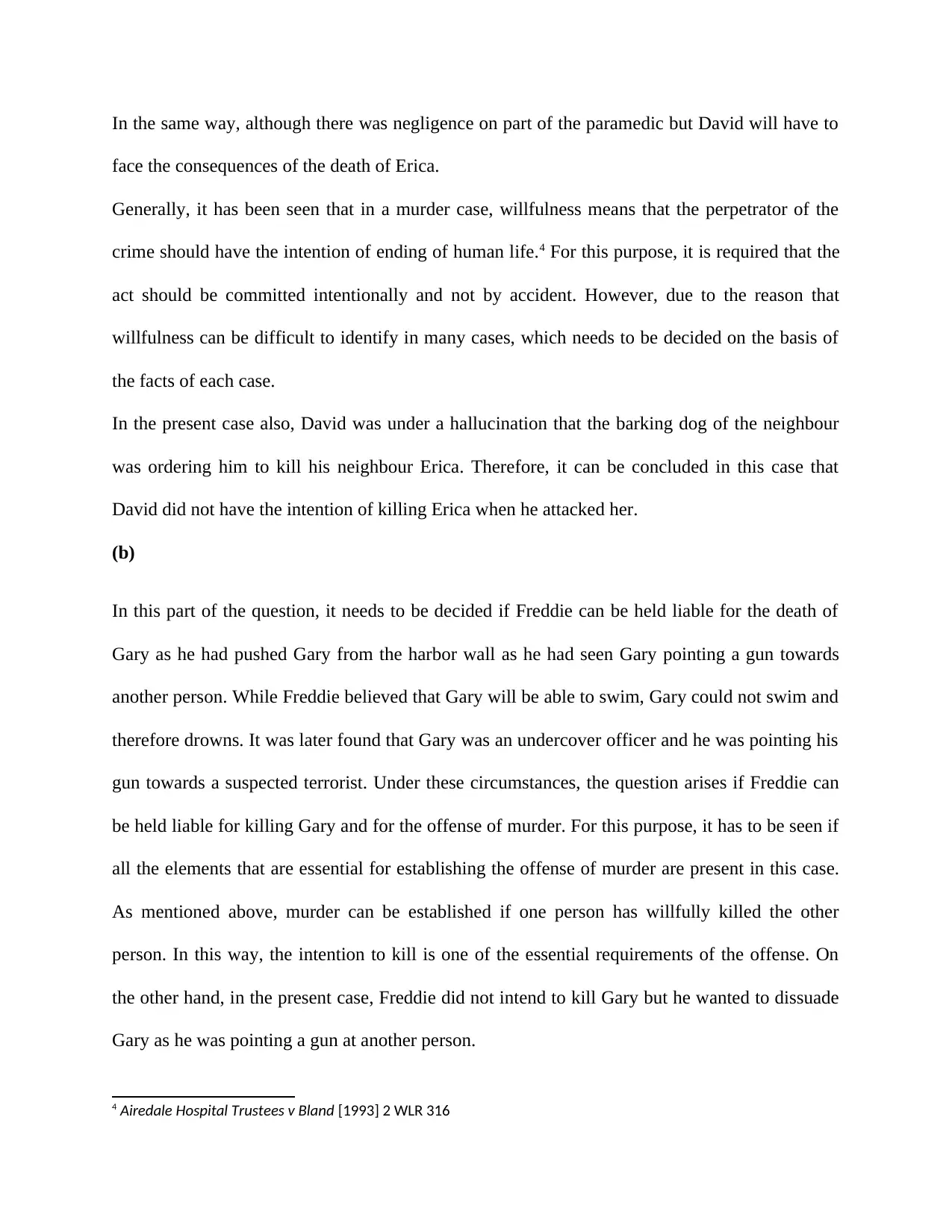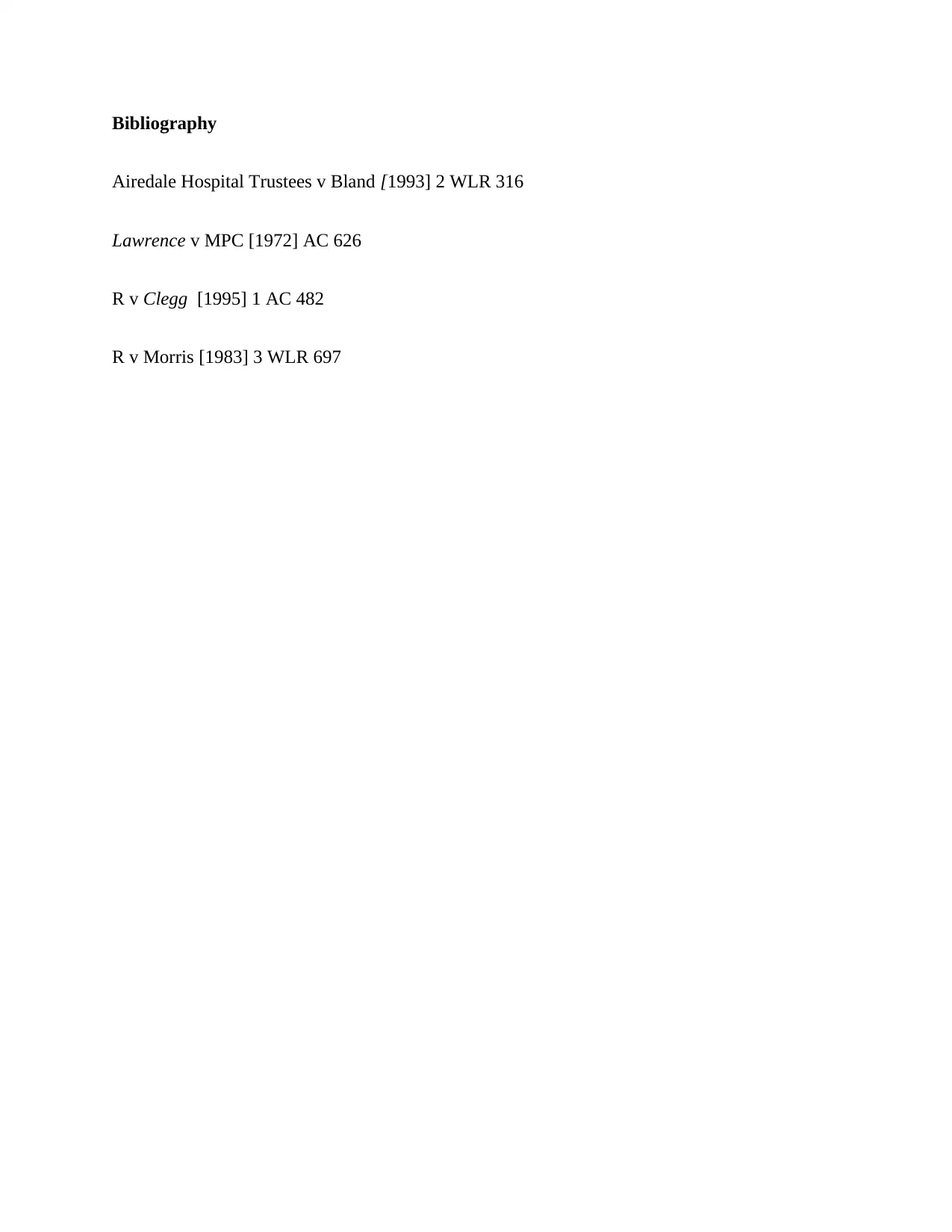Criminal Law: Analyzing Liability of Charles, David and Freddie
VerifiedAdded on 2020/03/02
|5
|1095
|74
Homework Assignment
AI Summary
This assignment provides a detailed legal analysis of two scenarios involving criminal liability. The first scenario examines the liability of Charles for causing both physical and emotional harm to Mike, including injuries from a beer glass and subsequent panic attacks. The analysis considers the elements of criminal liability and the impact of emotional distress. The second scenario assesses Charles's liability for theft after taking a season ticket and cash from Jenny's coat pocket, focusing on the intent to deprive and lack of consent. The second part of the assignment analyzes the liability of David for the death of Erica, considering his hallucinations and the absence of mens rea for murder. The final part evaluates Freddie's liability for the death of Gary, emphasizing the lack of intent to kill and the circumstances surrounding Gary's actions as an undercover officer. The analysis considers the elements of murder, including actus reus and mens rea, and relevant case law.
1 out of 5








![[object Object]](/_next/static/media/star-bottom.7253800d.svg)